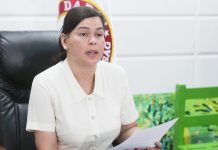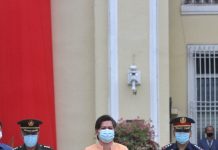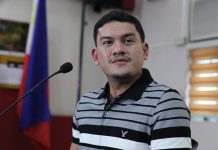The World Bank (WB) has rated the antipoverty program in Mindanao satisfactory.
This came after the WB team reported recently here the result of its month-long assessment of the Department of Agriculture’s Mindanao Rural Development Program (DA-MRDP).
DA-MRDP is a long term poverty alleviation program for Mindanao jointly funded by the World Bank, the national and local governments, and the project proponents.
It covers 225 of the 420 towns across Mindanao .
WB said the program has performed well both in terms of achieving its development objectives and its implementation progress.
The evaluation was based on two development objectives: the increase of incomes of the benefited communities and the institutionalization of a decentralized agriculture and fisheries services delivery mechanism.
WB lead rural development specialist Carolina F. Geron said although the loan disbursement was slow, significant improvements have been achieved.
“The trajectory of loan disbursement targets is not yet in the path of the catch-up targets they (Program management) set earlier, but they have implemented various projects that lead to meet the program’s objectives,” Geron said.
“The program has also reported considerable improvements in the physical and financial performance of the project compared to the previous assessment in August 2009,” she added.
Program director Lealyn A. Ramos said the good performance of the program can be alluded to the active participation and involvement of local government units (LGUs).
To date, 164 towns have availed of and benefited from the infrastructure, livelihoods and environment projects of the program.
Now on its third year of implementation, MRDP has accomplished over 131 million worth of agricultural infrastructure of which close to 66 kilometers of farm-to-market roads have been established, 39 linear meters of bridges and four units of potable water systems erected serving over a thousand households.
With the counterpart of beneficiaries, about P87.01 million worth of various agri-based livelihoods were created benefiting mostly women and Indigenous Peoples and P42 million had been invested for environmental conservation and protection.
Lead implementers
For rural infrastructure (RI), northern Mindanao (region 10) leads the implementation which has completed projects amounting to P53.15 million, on-going subprojects P58.28 million. Caraga region (region 13) is second, having implemented a total of P31.08 million worth of projects. Followed by regions 12, 11, 9 and ARMM, respectively.
RI implements projects farm to market roads, irrigation systems, single lane bridges, and postharvest facilities.
For the Community Fund for Agricultural Development (CFAD), the livelihood component, ARMM leads in the implementation which utilized 92% of its released funds to date, followed by regions 13 and 10 both of which disbursed 75% of their released funds. Region 12 comes in fourth and regions 11 and 9 were ranked fifth and sixth respectively.
CFAD employs the community driven development (cdd) approach where peoples’ organizations themselves identify and implement their projects with the help of the LGUs. [Sherwin B. Manual]
More funds available
Ramos said that while a frontload of investments have been spent, there is still a bulk of funds ready for LGUs.
“We urge LGUs to avail more of the projects under MRDP, especially on agricultural infrastructure projects which will pump-prime more income and investments in their locality,” Ramos said.
“We have reaped success from our labor and we expect to deliver more as more projects are rolled out to the communities,” Ramos said.
WB Team
The review mission team was also participated in by WB operations officer for rural development Felizardo Virtucio, Jr.; rural development economist and M&E specialist Fabricio Bresciani; institutional development specialist Luningning Bondoc; rural infrastructure engineer Salvador Jiao; social development specialist Ines Bagadion; natural resources management specialist Gilbert Braganza; and decentralization specialist Cesar Umali.






